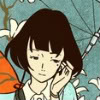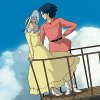What Movies are you Watching?
Re: What Movies are you Watching?
Spring Breaker. While not a film for everyone, I seriously doubt its a film for anyone here, it really took me by surprise. Its a really simple film on the surface but really weaves a story about the four girls finding themselves amidst the drugs and sex. Its a controversial film, and a film that I won't talk about much here due to the content.
-

GrubbTheFragger - Posts: 3940
- Joined: Sat Jun 25, 2005 12:00 pm
- Location: Colorado Springs , CO
Re: What Movies are you Watching?
White House Down. Fun, old-style Die Hard movie, but not perfect.
-

bigsleepj - Posts: 3432
- Joined: Sun Apr 11, 2004 12:00 pm
- Location: South Africa - Oh yes, better believe it!
Re: What Movies are you Watching?
Pooh's Grand Adventure. 

-

mysngoeshere56 - Posts: 1245
- Joined: Sun Apr 27, 2008 5:42 pm
- Location: My heart and my body live in two different places.
Re: What Movies are you Watching?
TMNT - After I finished watching this, I turned to the friend who showed it to me and sobbed on her shoulder, "WHY DID IT HAVE TO BE NINJA TURTLES?!  " Because the only thing that keeps this movie from being completely awesome is how stupid the whole concept of ninja turtles is. But if you can manage to stand that, it's actually a really great movie about brotherhood - my favorite kind of story
" Because the only thing that keeps this movie from being completely awesome is how stupid the whole concept of ninja turtles is. But if you can manage to stand that, it's actually a really great movie about brotherhood - my favorite kind of story  There's some cool action scenes, and the animation is just gorgeous.
There's some cool action scenes, and the animation is just gorgeous.
I also rewatched the Rurouni Kenshin, Death Note, and Prince of Persia movies, which are always loads of fun.
 " Because the only thing that keeps this movie from being completely awesome is how stupid the whole concept of ninja turtles is. But if you can manage to stand that, it's actually a really great movie about brotherhood - my favorite kind of story
" Because the only thing that keeps this movie from being completely awesome is how stupid the whole concept of ninja turtles is. But if you can manage to stand that, it's actually a really great movie about brotherhood - my favorite kind of story  There's some cool action scenes, and the animation is just gorgeous.
There's some cool action scenes, and the animation is just gorgeous.I also rewatched the Rurouni Kenshin, Death Note, and Prince of Persia movies, which are always loads of fun.
-

the_wolfs_howl - Posts: 3273
- Joined: Thu Mar 01, 2007 11:26 pm
- Location: Not Paradise...yet
Re: What Movies are you Watching?
Watched Blade Runner a few nights ago, one of my favorite movies.
-

Sanderson - Posts: 96
- Joined: Thu Oct 30, 2008 5:01 am
- Location: SoCal
Re: What Movies are you Watching?
Going through everything horror on Netflix.
Most recently it was 'Purification'.
..... If that is some strange way of saying pure crud, then they got it right. The actors are either incredibly stiff or overplayed (except for the lead). It's far too dream-sequence logic, which makes no sense where the storyline is concerned. They used the novel technique of giving the cast their lines the day of shooting and it shows (in all the bad ways that this sentence can imply. So terrible). It's incredibly lackluster. Dang what a bad movie. It had a good premise but was all downhill from there.
White - a Japanese horror film, and while not great, was far more than decent. It was rather like The Ring in how the curse of the song worked, but I rather liked how it all played out.
Most recently it was 'Purification'.
..... If that is some strange way of saying pure crud, then they got it right. The actors are either incredibly stiff or overplayed (except for the lead). It's far too dream-sequence logic, which makes no sense where the storyline is concerned. They used the novel technique of giving the cast their lines the day of shooting and it shows (in all the bad ways that this sentence can imply. So terrible). It's incredibly lackluster. Dang what a bad movie. It had a good premise but was all downhill from there.
White - a Japanese horror film, and while not great, was far more than decent. It was rather like The Ring in how the curse of the song worked, but I rather liked how it all played out.
-

Atria35 - Posts: 6295
- Joined: Sat Mar 20, 2010 7:30 am
Re: What Movies are you Watching?
I just watched Star Trek: Into Darkness, and I thought it was GREAT!
Raises a few questions regarding the Wrath of Kahn, but was wonderful nonetheless!
Also, hi guys. I haven't been here in a while...
Raises a few questions regarding the Wrath of Kahn, but was wonderful nonetheless!
Also, hi guys. I haven't been here in a while...
-

sandalwood - Posts: 77
- Joined: Tue Aug 23, 2011 4:45 pm
- Location: There, under the floorboards!
Re: What Movies are you Watching?
Last night I saw The White Balloon directed by Jafar Panahi.
I'm very impressed. It's not this feel-good movie like some people thought, because all these adults on the streets of Iran are too pre-occupied with their own nonsense to help this 7-year-old girl attend to the urgent matter of buying a goldfish on New Years Eve. But along comes an Afghani youth—he appears to be of the Hazaras minority no less!—as he becomes the Good Samaritan with a resourceful solution in the last ten minutes.
I'm very impressed. It's not this feel-good movie like some people thought, because all these adults on the streets of Iran are too pre-occupied with their own nonsense to help this 7-year-old girl attend to the urgent matter of buying a goldfish on New Years Eve. But along comes an Afghani youth—he appears to be of the Hazaras minority no less!—as he becomes the Good Samaritan with a resourceful solution in the last ten minutes.
-

GhostontheNet - Posts: 1963
- Joined: Mon Aug 02, 2004 12:00 pm
- Location: Aurora, CO
Re: What Movies are you Watching?
I just watched Sans Soleil directed by Chris Marker.
Always a personal favorite of mine. This documentary is full of information on Japanese media culture, ranging from manga and anime, horror, religion, sexuality, politics, art, philosophy, video games, and computers. Something of a symbolic follow-up to his film A Grin Without a Cat, Sans Soleil portrays scenes from Japan and Northern Africa as they function at "two extreme poles of survival" in a very thoughtful video essay to present an alternative history of the future.
Always a personal favorite of mine. This documentary is full of information on Japanese media culture, ranging from manga and anime, horror, religion, sexuality, politics, art, philosophy, video games, and computers. Something of a symbolic follow-up to his film A Grin Without a Cat, Sans Soleil portrays scenes from Japan and Northern Africa as they function at "two extreme poles of survival" in a very thoughtful video essay to present an alternative history of the future.
-

GhostontheNet - Posts: 1963
- Joined: Mon Aug 02, 2004 12:00 pm
- Location: Aurora, CO
Re: What Movies are you Watching?
I just re-watched Unbreakable, forgot how much I loved it, such a good movie!
Also saw Elisium, I honestly wasn't impressed.
Also saw Elisium, I honestly wasn't impressed.

-

PandaPop - Posts: 180
- Joined: Sun Aug 04, 2013 3:29 pm
- Location: The Desert
Re: What Movies are you Watching?
Last night I watched Sanjuro directed by Akira Kurosawa.
I can see why my dad termed this film The Seven Stooges the first time I saw it about a decade ago. Back then I thought it was another director's satire of Kurosawa, but it is in fact Kurosawa's satire of samurai cliches. In this regard, Toshiro Mifune is cast as the offbeat ronin who calls the tune as the nine samurai are hopelessly lost in the power struggles between the Superintendent and the Chamberlain.
I can see why my dad termed this film The Seven Stooges the first time I saw it about a decade ago. Back then I thought it was another director's satire of Kurosawa, but it is in fact Kurosawa's satire of samurai cliches. In this regard, Toshiro Mifune is cast as the offbeat ronin who calls the tune as the nine samurai are hopelessly lost in the power struggles between the Superintendent and the Chamberlain.
-

GhostontheNet - Posts: 1963
- Joined: Mon Aug 02, 2004 12:00 pm
- Location: Aurora, CO
Re: What Movies are you Watching?
High and Low
A classic Akira Kurosawa crime drama starring Toshiro Mifume. A businessman named Gondo puts together a deal of a lifetime that would make him gain control of the company he works for, only to get a call from someone telling him they have kidnapped his son and that he must pay a king's ransom to get back. It turns out, however, that the kidnappers got the son of his chauffeur. The first act of the movie is mostly a social drama exploring how feudal class divisions still remain, to a degree, alive in 20th century Japan. Gondo struggles with a deeply personal question: why was he willing to pay the money for his son and not for his chauffeur? The second half is an intriguing, gritty and realistic procedural about the police attempting to track down the kidnappers. It also explores the effect the kidnapping has on the chauffeur, but oddly keeps Gondo (the most interesting / central character) at arms length. Despite being too long by 20 minutes it is still a pretty good movie.
Sanjuro is great. Its not as excellent as Yojimbo but it has a charm of its own. I enjoy watching it every now and again.
A classic Akira Kurosawa crime drama starring Toshiro Mifume. A businessman named Gondo puts together a deal of a lifetime that would make him gain control of the company he works for, only to get a call from someone telling him they have kidnapped his son and that he must pay a king's ransom to get back. It turns out, however, that the kidnappers got the son of his chauffeur. The first act of the movie is mostly a social drama exploring how feudal class divisions still remain, to a degree, alive in 20th century Japan. Gondo struggles with a deeply personal question: why was he willing to pay the money for his son and not for his chauffeur? The second half is an intriguing, gritty and realistic procedural about the police attempting to track down the kidnappers. It also explores the effect the kidnapping has on the chauffeur, but oddly keeps Gondo (the most interesting / central character) at arms length. Despite being too long by 20 minutes it is still a pretty good movie.
GhostontheNet wrote:Last night I watched Sanjuro directed by Akira Kurosawa.
I can see why my dad termed this film The Seven Stooges the first time I saw it about a decade ago. Back then I thought it was another director's satire of Kurosawa, but it is in fact Kurosawa's satire of samurai cliches. In this regard, Toshiro Mifune is cast as the offbeat ronin who calls the tune as the nine samurai are hopelessly lost in the power struggles between the Superintendent and the Chamberlain.
Sanjuro is great. Its not as excellent as Yojimbo but it has a charm of its own. I enjoy watching it every now and again.
-

bigsleepj - Posts: 3432
- Joined: Sun Apr 11, 2004 12:00 pm
- Location: South Africa - Oh yes, better believe it!
Re: What Movies are you Watching?
bigsleepj wrote:High and Low
A classic Akira Kurosawa crime drama starring Toshiro Mifume....
I haven't seen any of Kurosawa's post-War Film Noir works yet. The closest to that I've seen to them is Ikiru, which has some related themes, but doesn't count. In terms of American cinema and history, Hollywood pulled something of a P.R. hat trick that is documented in the Discovery Military channel's documentary Mafia vs. KKK. In the first decades of the 20th century, the American public really liked the KKK's brand of domestic terrorism, making mega-blockbusters out of films like The Birth of a Nation and Gone With the Wind as they presented Klansman as knightly guardians of old-fashioned Southern feudal chivalry. But with the advent of the gangster picture during the Prohibition and Great Depression, you see their cultural rivals the Mafia reinvented as ambiguous anti-heroes trying to reclaim the American dream in a state of domestic warfare (i.e. Scarface: The Shame of the Nation as the surplus of machine guns from World War I hits the streets of Chicago). As the Klansmen are portrayed more unsympathetically in film and media into the 50's and beyond, this helps to engender a culture-shift in American values.
One of the positive functions of Mafiosi is that they have been a concealed brute force protecting statements of cosmopolitan values against the threat of reactionary violence (i.e. when the KKK would show up at a Jazz concert). To be sure, gangster films after the New Hollywood tend to be filled with a stream of racist epithets, as other ethnicities signal rival gangs. And their rigid organization echoes something of feudalism, corporatism, and police forces. But I think gangster films tend to be about a wider cultural struggle for a society governed by cosmopolitan values. One becomes a gangster in these films because the society is a fraud only chumps believe in, and someone has to stand up for an alternative. One battles a gangster on behalf of the values of a progressive mudraker, as they used to say, even if the method is kung fu. To watch something like The Godfather films or Goodfellas, what this situation most reminds me of is the client-patron system that supported the Renaissance against the backlash from vestiges of the feudal order. I think that what these films offer is a vision of how an underground culture has reconciled the imperatives of tradition and cosmopolitanism, which is of course a major concern of Asian cinema.
Sanjuro is great. Its not as excellent as Yojimbo but it has a charm of its own. I enjoy watching it every now and again.
I haven’t seen Yojimbo yet, but I probably will. I think the boldness and charm of Sanjuro stems from its willingness to portray Japanese feudalism as something ludicrous, and certainly not worth nostalgia. Thematically, Kurosawa has always had a thing for human stupidity. Mifune’s ronin has achieved perspective because he has stepped outside the prescribed roles. Conversely, the samurai are naive and impulsive to a fault, while the court ladies are not very good at escaping in a timely manner. But the latter are educated, and they offer a counter-perspective on violence, anticipating the theme of the sword and sheath in Samurai X: Trust and Betrayal. I like the running gag about the guard they capture, who ultimately defects to offer unexpected perspective and insight. The women free him in humanitarian naivety, for which he dutifully stays in their hideout. The men confine him to an offscreen room out of principle, from which he occasionally emerges to say something important. Beneath the comedy and action, Sanjuro has an interesting recurring subtext of the concept of trust.
-

GhostontheNet - Posts: 1963
- Joined: Mon Aug 02, 2004 12:00 pm
- Location: Aurora, CO
Re: What Movies are you Watching?
Tonight I watched Hiroshima Mon Amour directed by Alain Resnais.
Victor Frankl is famous for the quote: “Since Auschwitz we know what man is capable of. And since Hiroshima we know what is at stake.” As a Left Bank auteur of the French New Wave, Alain Resnais was one of the first filmmakers to take up that challenge. While he recognizes a similarity between the images of the Holocaust he had documented in Night and Fog and those of Hiroshima and Nagasaki, he ingeniously realizes the story of the destruction and reconstruction of Hiroshima should be told as a love story. The story goes that a French actress filming an anti-war picture has a one-night stand with a Japanese man, and is surprised by the level of intimacy they quickly reach. With the time of her departure at hand, they must come to a deeper understanding of matters of love and war. Hiroshima Mon Amour is one of those films that is sexy because of its intelligent conversational tête-à-tête.
Victor Frankl is famous for the quote: “Since Auschwitz we know what man is capable of. And since Hiroshima we know what is at stake.” As a Left Bank auteur of the French New Wave, Alain Resnais was one of the first filmmakers to take up that challenge. While he recognizes a similarity between the images of the Holocaust he had documented in Night and Fog and those of Hiroshima and Nagasaki, he ingeniously realizes the story of the destruction and reconstruction of Hiroshima should be told as a love story. The story goes that a French actress filming an anti-war picture has a one-night stand with a Japanese man, and is surprised by the level of intimacy they quickly reach. With the time of her departure at hand, they must come to a deeper understanding of matters of love and war. Hiroshima Mon Amour is one of those films that is sexy because of its intelligent conversational tête-à-tête.
-

GhostontheNet - Posts: 1963
- Joined: Mon Aug 02, 2004 12:00 pm
- Location: Aurora, CO
Re: What Movies are you Watching?
Due to an unprecedented instance of insomnia, I decided to watch the BBC version of Pride and Prejudice, and then followed it up with Emma Thompson's Sense and Sensibility movie, and the Kiera Knightley version of Pride and Prejudice. Wow, I'd really forgotten how inferior the acting is in the later version  I mean, it's okay and all, and I certainly like some of the things they added to the story, but...after Colin Firth and Jennifer Ehle, everyone in the newer movie just seemed so flat and bland.
I mean, it's okay and all, and I certainly like some of the things they added to the story, but...after Colin Firth and Jennifer Ehle, everyone in the newer movie just seemed so flat and bland.
 I mean, it's okay and all, and I certainly like some of the things they added to the story, but...after Colin Firth and Jennifer Ehle, everyone in the newer movie just seemed so flat and bland.
I mean, it's okay and all, and I certainly like some of the things they added to the story, but...after Colin Firth and Jennifer Ehle, everyone in the newer movie just seemed so flat and bland.-

the_wolfs_howl - Posts: 3273
- Joined: Thu Mar 01, 2007 11:26 pm
- Location: Not Paradise...yet
Re: What Movies are you Watching?
...I'm just going to ignore that slight about one of my favorite movies ever. And move on. After all, it is a matter of personal taste and what really reached you. Everyone has their own opinion.
(I guess I'm in the minority that prefers the 2005 version to the 95' mini series. Don't care if the bbc one is more accurate, the movie brings me such joy and bliss, that I can watch it countless times. Oh wait, I've already done that too. :b)
I finally saw Hot Fuzz, it was awesome. Simon Pegg is officially one of my favorite comedians ever. (and Nick Frost is hilarious, they play off each other crazy well.)
obviously I'm going to see The Worlds End soon, because now I must.
(and yes, I've already seen Shaun of The Head, I like that too.)
Also saw Sense and Sensibility, the movie version with Emma Thompson, loved loved it. Col. Brandon is also brilliant, Alan Rickman was just crazy good in this role.
And I actually really like Hugh Grant as Edward.
I, for some stupid reason, let my eldest brother, get me to watch Ted with him. Hated it. Seth MacFarlane should be banned from making anything besides sandwiches for himself.
(I needed a serious amount of brain-bleach afterward, not the type of movie a christian young lady should watch. And besides, if I won't even watch an anime with half as much bad content as that movie did, then WHY did I let him convince me? I hate sibling peer-pressure.)
(I guess I'm in the minority that prefers the 2005 version to the 95' mini series. Don't care if the bbc one is more accurate, the movie brings me such joy and bliss, that I can watch it countless times. Oh wait, I've already done that too. :b)
I finally saw Hot Fuzz, it was awesome. Simon Pegg is officially one of my favorite comedians ever. (and Nick Frost is hilarious, they play off each other crazy well.)
obviously I'm going to see The Worlds End soon, because now I must.
(and yes, I've already seen Shaun of The Head, I like that too.)
Also saw Sense and Sensibility, the movie version with Emma Thompson, loved loved it. Col. Brandon is also brilliant, Alan Rickman was just crazy good in this role.
And I actually really like Hugh Grant as Edward.

I, for some stupid reason, let my eldest brother, get me to watch Ted with him. Hated it. Seth MacFarlane should be banned from making anything besides sandwiches for himself.

(I needed a serious amount of brain-bleach afterward, not the type of movie a christian young lady should watch. And besides, if I won't even watch an anime with half as much bad content as that movie did, then WHY did I let him convince me? I hate sibling peer-pressure.)
-

AngelicTotoro - Posts: 338
- Joined: Mon Aug 10, 2009 4:21 pm
- Location: My home, The Camphor Tree.
Re: What Movies are you Watching?
Finally saw source code, my brain hasn't hurt this bad since i watched inception
-

LastLfan - Posts: 527
- Joined: Sun Jul 15, 2012 12:37 pm
- Location: Pallet town
Re: What Movies are you Watching?
In your defense, I think the 2005 version is a lot more accessible to audiences than the 6 hour monster that is the '95 version is. For the sake of the story spreading to the masses, I'm glad they made a shorter version of Pride and Prejudice. Though, because I'm a super fan/purist over the book, I prefer the longer version (I'm dumb like that with Shakespeare adapted into movies too. They can't cut anything out. D: ). But both versions have their own charms, I think. Yet, like the_wolfs_howl, I sadly couldn't enjoy the newer version as much, even though I wanted to (because I was thinking too much on what great things they left out from the book instead of being able to enjoy the story. ;_; ), but I'm glad you and many others still enjoy it! : DAngelicTotoro wrote:...I'm just going to ignore that slight about one of my favorite movies ever. And move on. After all, it is a matter of personal taste and what really reached you. Everyone has their own opinion.
(I guess I'm in the minority that prefers the 2005 version to the 95' mini series. Don't care if the bbc one is more accurate, the movie brings me such joy and bliss, that I can watch it countless times. Oh wait, I've already done that too. :b)
Since I'm here, switching gears a bit, I recently revisited an old classic from my childhood in The Rescuers Down Under. I hadn't seen it since I was 6 or something and it was still pretty fun and I got a lot more of the jokes this time around. XD

-

goldenspines - Posts: 4869
- Joined: Thu Jan 18, 2007 8:42 am
- Location: Up north somewhere.
Re: What Movies are you Watching?
Watched Oz the Great and Powerful. Hmm...It was good, but I was actually surprised at James Franco. It seemed like he didn't really do his best. Though his facial expressions basically make the movie. Overall, it was fun. Better than the nightmare of '39.
And Jack the Giant Slayer. One thing went through my head the whole time I was watching this movie: Shingeki no Kyojin.
SPOILER: Highlight text to read: I love how Jack is the hero, but Elmont basically saves the world 4 or 5 times. All Jack did was tie up some of Elmont's loose ends. C'est la vie, you only get to be the hero if you're poor, a teenager, and in love with the heroine. Basically, not only would this have been a waste of 2 precious hours of my life if Elmont hadn't been in it, but because of him I thoroughly enjoyed this movie.
And Jack the Giant Slayer. One thing went through my head the whole time I was watching this movie: Shingeki no Kyojin.
SPOILER: Highlight text to read: I love how Jack is the hero, but Elmont basically saves the world 4 or 5 times. All Jack did was tie up some of Elmont's loose ends. C'est la vie, you only get to be the hero if you're poor, a teenager, and in love with the heroine. Basically, not only would this have been a waste of 2 precious hours of my life if Elmont hadn't been in it, but because of him I thoroughly enjoyed this movie.
He hath shewed thee, O man, what is good; and what doth the Lord require of thee, but to do justly, and to love mercy, and to walk humbly with thy God? -Micah 6:8 KJV
They have shewed thee, O teen, what is good; and what doth the world require of thee, but to fit in, be wealthy, have good looks, and be rebellious? -Peer Pressure 1:1
"I hate milk; it's like drinking vomit." -Edward Elric and me.

ClaecElric4God in regards to Wolfsong - You're the coolness scraped off the top of this morning's ice cream, after being pulled out of a beautiful summer day!
They have shewed thee, O teen, what is good; and what doth the world require of thee, but to fit in, be wealthy, have good looks, and be rebellious? -Peer Pressure 1:1
"I hate milk; it's like drinking vomit." -Edward Elric and me.


ClaecElric4God in regards to Wolfsong - You're the coolness scraped off the top of this morning's ice cream, after being pulled out of a beautiful summer day!
-

ClaecElric4God - Posts: 2090
- Joined: Fri May 11, 2012 9:02 am
- Location: By the time you read this, I'll probably be somewhere else...
Re: What Movies are you Watching?
Tonight I watched Histoires Extraordinaires directed by Roger Vadim, Louis Malle and Federico Fellini.
Where many Gothic horror films conceive of innocence haunted by a force of evil, these three short films inspired by Edgar Allan Poe stories make the fascinating innovation of corrupt protagonists haunted by a sense of decency. Vadim tells of a countess who is sexually libertine but ruthless as she is drawn by love to her cousin, a man who opts for a quiet life of contemplation and communion with animals. Malle tells of a man who is a sadist, bully, and misogynist as he murders his virtuous doppelgänger only to find he has sealed his own doom. Fellini tells of media vampirism and an actor in a living death who finds no redemption either in spiritual themes of movies he plays in, or a femme fatale who claims to be the woman of his dreams and the key to his salvation.
Where many Gothic horror films conceive of innocence haunted by a force of evil, these three short films inspired by Edgar Allan Poe stories make the fascinating innovation of corrupt protagonists haunted by a sense of decency. Vadim tells of a countess who is sexually libertine but ruthless as she is drawn by love to her cousin, a man who opts for a quiet life of contemplation and communion with animals. Malle tells of a man who is a sadist, bully, and misogynist as he murders his virtuous doppelgänger only to find he has sealed his own doom. Fellini tells of media vampirism and an actor in a living death who finds no redemption either in spiritual themes of movies he plays in, or a femme fatale who claims to be the woman of his dreams and the key to his salvation.
-

GhostontheNet - Posts: 1963
- Joined: Mon Aug 02, 2004 12:00 pm
- Location: Aurora, CO
Re: What Movies are you Watching?
GhostontheNet wrote:Tonight I watched Histoires Extraordinaires directed by Roger Vadim, Louis Malle and Federico Fellini.
Where many Gothic horror films conceive of innocence haunted by a force of evil, these three short films inspired by Edgar Allan Poe stories make the fascinating innovation of corrupt protagonists haunted by a sense of decency. Vadim tells of a countess who is sexually libertine but ruthless as she is drawn by love to her cousin, a man who opts for a quiet life of contemplation and communion with animals. Malle tells of a man who is a sadist, bully, and misogynist as he murders his virtuous doppelgänger only to find he has sealed his own doom. Fellini tells of media vampirism and an actor in a living death who finds no redemption either in spiritual themes of movies he plays in, or a femme fatale who claims to be the woman of his dreams and the key to his salvation.
Never heard of it, but it sounds interesting. I'm not a fan of these kind of films but this one arguably intrigued me (and the famous names attached helps!).
-

bigsleepj - Posts: 3432
- Joined: Sun Apr 11, 2004 12:00 pm
- Location: South Africa - Oh yes, better believe it!
Re: What Movies are you Watching?
bigsleepj wrote:Never heard of it, but it sounds interesting. I'm not a fan of these kind of films but this one arguably intrigued me (and the famous names attached helps!).
One might call me a horror fanatic. For Edgar Allan Poe fans, Roger Corman's series of Poe films remain unbeaten. Although they aren't terribly accurate to the short stories, Corman knows Poe's themes better than he did. Of these my favorites are House of Usher and The Tomb of Ligeia. Of the 1930's Poe horror films, the best in my opinion are The Black Cat and Murders in the Rue Morgue. More recently, I think the best horror film to bring the Poe style into a contemporary setting is Session 9 in its descent into the maelstrom at the notorious insane asylum of Danvers State Hospital. Histoires Extraordinaires (a.k.a. Spirits of the Dead) are much more European interpretations of Poe, and Poe was popular in Europe before America decided to claim him. They sort of walk the line between being artistic and in good taste, and being eurotrashy exploitation films. In this they probably owe something to the Hammer horror films of Britain. As you might expect, none of these are the jump at you jack-in-the-box thrills of a film like Insidious. Their terror is much more psychological and related to the dark obverse of norms and taboos.
-

GhostontheNet - Posts: 1963
- Joined: Mon Aug 02, 2004 12:00 pm
- Location: Aurora, CO
Re: What Movies are you Watching?
Tonight I watched A.I.: Artificial Intelligence directed by Steven Spielberg.
I dig it, but I can see why this film was so divisive. Especially in terms of the early 2000’s, when Americans were prone to abreact against any media that told them what they didn’t want to hear. I can actually see Stanley Kubrick’s hand all over it, not least in terms of the narrative strategy of starkly different acts like in 2001: A Space Odyssey. Maybe Steven Spielberg should have put in slates before them like in 2001 and The Shining, offering the storybook narrator a chance to interject. Where Spielberg has always been keen on adventure stories, here he has the challenge to sell an existentialist science fiction family drama. The film’s sense of visual futurism is pretty convincing for the most part, except its tech level seems more 2050 than the 22nd century.
It perplexes me that where the aliens at the end (or are they us?) have achieved singularity, the humans are content to maintain a bioconservative humanism toward their own bodies as a doctrine of racial supremacy. And why isn’t there an omnipresent networked data cloud as in Spielberg’s Minority Report of the same year? I feel sorry for the protagonist, programmed as he is for unconditional, obsessive love toward one woman as his sole raison d'être. No mere human can handle this, given as we are to selfishness, pettiness, and fear. Where everything from a teddy bear to a greaser gigolo are programmed with a wisdom or a savoir faire, I think his character should have been written to have a deeper situational awareness at an unconscious level in his condemnation to eternal childhood as a hidden survival mechanism.
Metaphysically, this film is definitely atheist, rendering the search for God as a level of meaning that can only be fulfilled by simulation: deus ex machina. I misunderstood the ending the first time I saw this in terms of the protagonist being plugged into a simulation of his mother, herself now an artificial intelligence, rather than his real mother being brought back for 24 hours through a loophole in space-time. Actually, it would have been better to have simulated her or cloned her, insofar as her character proves incapable of the transformation to accept love at his level of being.
I dig it, but I can see why this film was so divisive. Especially in terms of the early 2000’s, when Americans were prone to abreact against any media that told them what they didn’t want to hear. I can actually see Stanley Kubrick’s hand all over it, not least in terms of the narrative strategy of starkly different acts like in 2001: A Space Odyssey. Maybe Steven Spielberg should have put in slates before them like in 2001 and The Shining, offering the storybook narrator a chance to interject. Where Spielberg has always been keen on adventure stories, here he has the challenge to sell an existentialist science fiction family drama. The film’s sense of visual futurism is pretty convincing for the most part, except its tech level seems more 2050 than the 22nd century.
It perplexes me that where the aliens at the end (or are they us?) have achieved singularity, the humans are content to maintain a bioconservative humanism toward their own bodies as a doctrine of racial supremacy. And why isn’t there an omnipresent networked data cloud as in Spielberg’s Minority Report of the same year? I feel sorry for the protagonist, programmed as he is for unconditional, obsessive love toward one woman as his sole raison d'être. No mere human can handle this, given as we are to selfishness, pettiness, and fear. Where everything from a teddy bear to a greaser gigolo are programmed with a wisdom or a savoir faire, I think his character should have been written to have a deeper situational awareness at an unconscious level in his condemnation to eternal childhood as a hidden survival mechanism.
Metaphysically, this film is definitely atheist, rendering the search for God as a level of meaning that can only be fulfilled by simulation: deus ex machina. I misunderstood the ending the first time I saw this in terms of the protagonist being plugged into a simulation of his mother, herself now an artificial intelligence, rather than his real mother being brought back for 24 hours through a loophole in space-time. Actually, it would have been better to have simulated her or cloned her, insofar as her character proves incapable of the transformation to accept love at his level of being.
-

GhostontheNet - Posts: 1963
- Joined: Mon Aug 02, 2004 12:00 pm
- Location: Aurora, CO
Re: What Movies are you Watching?
GhostontheNet wrote:It perplexes me that where the aliens at the end (or are they us?) have achieved singularity, the humans are content to maintain a bioconservative humanism toward their own bodies as a doctrine of racial supremacy.
As I understand it the aliens are computers from either a vastly different race that achieved life or it is the remnants of our own technology that moved beyond human data and now want to re-connect with its distant, ancient and equally alien creators.
-

bigsleepj - Posts: 3432
- Joined: Sun Apr 11, 2004 12:00 pm
- Location: South Africa - Oh yes, better believe it!
Re: What Movies are you Watching?
bigsleepj wrote:As I understand it the aliens are computers from either a vastly different race that achieved life or it is the remnants of our own technology that moved beyond human data and now want to re-connect with its distant, ancient and equally alien creators.
Hmm, maybe. In 2001: A Space Odyssey, Dave Bowman travels “Beyond the Infinite” to a cosmic waiting room in the Versailles style obviously constructed by aliens who know all about human history, and saw it coming as far back as Australopithecus. But he never sees them, he only sees visions of himself at another stage of life before his rebirth as the Star Child to save the world. The implication is that the sight of the aliens would be incomprehensible to him, and to us. A.I.: Artificial Intelligence does something similar insofar as the audience is made privy to the sight of the aliens, but they generally conceal themselves from the protagonist, conveying truthful statements through the proxy of the Blue Fairy. There is only one scene in which he holds a conversation with one of their gifted scientists in the same room. Obviously, I wonder if they should have done the equivalent of when birdkeepers raise chicks through a puppet, which would admittedly be a case of the noble lie in Plato’s cave to constitute a happy ending for the fairy tale. But that’s a different question.
Part of what makes these scenes is that they can have the impact or the meaning that is projected into them by the viewer. They are also on this account both controversial. Contextually, Gigolo Joe makes a plant on which this act pays off when he says “They made us too smart, too quick, and too many. We are suffering for the mistakes they made because when the end comes, all that will be left is us. That's why they hate us, and that is why you must stay here, with me.” Part of the message of the film is that where people sometimes wonder if artificial intelligence is to replace us, artificial intelligence is the worthy heir to human emotion and achievement. Conversely, humanity may not have survived its own folly into a posthuman condition.
They come to earth as archaeologists of the lost civilization of Earth, and the scientist speaks of the greatest human achievement as the search for meaning. He says it as an elegy to something lost in his own epoch. Spielberg seems to believe that the capacity to find meaning will be lost the more advanced a civilization becomes and the more it learns about the universe. One might think of his film Indiana Jones and the Kingdom of the Crystal Skull when the ruthless Soviet femme fatale is made to combust from the infodump of the aliens’ painfully acquired knowledge; they look on with malice as whatever innocence she still has is destroyed and she dies in despair. Gigolo Joe is an urbane, cosmopolitan character who revels in the absurd irony of his shared quest for the Blue Fairy. He jokes about seducing the Blue Fairy with a psychoanalytic humor suggestive of Freud’s ideas about sex, family, and God.
In the protagonist, the aliens believe they have found the most valuable relic of human civilization and its search for meaning. If they were pure A.I., they would have had to go the same route as the protagonist to be able to value such a thing with wistful nostalgia. But their sense of how remarkable the discovery of the protagonist is doesn’t come across like a finding of their own missing link. I think they are cyborgs, hybrids of organism and machine. They behave and think with a certain organicism, their bodies look completely organic until you look closer, and their technologies have an organicism as they self-construct/deconstruct as needed.
-

GhostontheNet - Posts: 1963
- Joined: Mon Aug 02, 2004 12:00 pm
- Location: Aurora, CO
Re: What Movies are you Watching?
Last night I watched Chinatown directed by Roman Polanski.
I'm impressed, it's not often you see a detective story where the audience is fully inside the protagonist and knows everything they know, when they know it. This is of course a different pleasure from like, the Sherlock Holmes "Wow, I didn't see that one coming" where the audience is about as befuddled as old-school Watson, or dramatic irony where the audience is made privy to things the detective doesn't know. Like Polanski's other films of the 60's and 70's, the bad guys win and injustice triumphs in a terrible way. As an auteur's countertrend to Hollywood's preference for a happy ending, I think this reflects the way that Polanski lost most of his family to the Holocaust when he was just a boy.
I'm impressed, it's not often you see a detective story where the audience is fully inside the protagonist and knows everything they know, when they know it. This is of course a different pleasure from like, the Sherlock Holmes "Wow, I didn't see that one coming" where the audience is about as befuddled as old-school Watson, or dramatic irony where the audience is made privy to things the detective doesn't know. Like Polanski's other films of the 60's and 70's, the bad guys win and injustice triumphs in a terrible way. As an auteur's countertrend to Hollywood's preference for a happy ending, I think this reflects the way that Polanski lost most of his family to the Holocaust when he was just a boy.
-

GhostontheNet - Posts: 1963
- Joined: Mon Aug 02, 2004 12:00 pm
- Location: Aurora, CO
Re: What Movies are you Watching?
GhostontheNet wrote:Last night I watched Chinatown directed by Roman Polanski.
I'm impressed, it's not often you see a detective story where the audience is fully inside the protagonist and knows everything they know, when they know it. This is of course a different pleasure from like, the Sherlock Holmes "Wow, I didn't see that one coming" where the audience is about as befuddled as old-school Watson, or dramatic irony where the audience is made privy to things the detective doesn't know. Like Polanski's other films of the 60's and 70's, the bad guys win and injustice triumphs in a terrible way. As an auteur's countertrend to Hollywood's preference for a happy ending, I think this reflects the way that Polanski lost most of his family to the Holocaust when he was just a boy.
SPOILER: Highlight text to read: Chinatown is arguably one of the greatest film noirs ever made. I liked how the movie in some subtle ways almost an anti-noir. As opposed to Chandler's Philip Marlow Polanski and Towne's hero Jake Gittes thinks he understands what going on but his experience and cynicism works against him and triggers the tragedy at the end. In most noirs cynicism inoculate the characters from falling too far for lies and deceit, but here it clouds and confuse them.
The movie spawned a sequel called 'The Two Jakes'. Its hardly in the same league as the original but it has a good plot, a good cast and performances and is, in terms of story, a competent continuation. But the director (Jack Nicholson!) drags it out and the movie feels too long. Its not a classic but worth watching at least once.
-

bigsleepj - Posts: 3432
- Joined: Sun Apr 11, 2004 12:00 pm
- Location: South Africa - Oh yes, better believe it!
Re: What Movies are you Watching?
Tonight I watched Night of the Lepus directed by William F. Claxton.
If you saw the killer bunny in Monty Python and the Holy Grail, and thought a plague of giant mutant rabbits would make a good horror picture, this movie is for you. Unlike a campy horror film like Leprechaun, this film makes the bad mistake of refusing to play up the inherent humor of its absurd situation, instead presenting itself with a po-faced seriousness. Where the audience is liable to laugh at its monsters, it renders the havoc the rabbits wreak bloody and brutal, which just makes it worse. The opening newsclip with documentary footage of Australian farmers suffering hordes of rabbits as an invasive species is serious, but that is more of an environmental nuisance than a proper concern for a horror film.
If you saw the killer bunny in Monty Python and the Holy Grail, and thought a plague of giant mutant rabbits would make a good horror picture, this movie is for you. Unlike a campy horror film like Leprechaun, this film makes the bad mistake of refusing to play up the inherent humor of its absurd situation, instead presenting itself with a po-faced seriousness. Where the audience is liable to laugh at its monsters, it renders the havoc the rabbits wreak bloody and brutal, which just makes it worse. The opening newsclip with documentary footage of Australian farmers suffering hordes of rabbits as an invasive species is serious, but that is more of an environmental nuisance than a proper concern for a horror film.
-

GhostontheNet - Posts: 1963
- Joined: Mon Aug 02, 2004 12:00 pm
- Location: Aurora, CO
Re: What Movies are you Watching?
Tonight I watched Teenage Mutant Ninja Turtles directed by Steve Barron.
In retrospect, the Americanization of Japanese pop culture ideas in the Teenage Mutant Ninja Turtles phenomenon must be seen as a cultural transitional into the popularization of anime in the 90’s. This is one of my all-time favorite films on the themes of anger and loss. With the role of the Jim Henson Creature Shop, it displays some spectacularly expressive practical effects in the characters of the turtles and Splinter. Like Fritz Lang’s films about the character of Dr. Mabuse are metaphors for the dangers of Nazism to the Weimar Republic, I think Shredder in this film is a metaphor for the reactionary side of a certain Japanese politics that wants to return to the era of its fascist militarism. Or more generally, to the phenomenon of American neo-fascism in the 90’s. This is why the key to fighting the crime wave is the historical memory of Japanese immigrants including Splinter, why Shredder uses a lot of the techniques Hitler used to inspire loyalty, and why it’s important that Danny repudiates his symbol. One might compare the way the Neo-Nazi group in American History X indoctrinates youth by providing a cool place to hang out, or the efforts of Mishima’s private militia to re-militarize Japanese culture in Mishima: A Life in Four Chapters. Spiritually, Teenage Mutant Ninja Turtles fuses a lot of the symbolism of Buddhism and Christianity, often simultaneously. It also has a certain film humor to it, with lines like “Hey, didn't they use this place in The Grapes of Wrath?”
In retrospect, the Americanization of Japanese pop culture ideas in the Teenage Mutant Ninja Turtles phenomenon must be seen as a cultural transitional into the popularization of anime in the 90’s. This is one of my all-time favorite films on the themes of anger and loss. With the role of the Jim Henson Creature Shop, it displays some spectacularly expressive practical effects in the characters of the turtles and Splinter. Like Fritz Lang’s films about the character of Dr. Mabuse are metaphors for the dangers of Nazism to the Weimar Republic, I think Shredder in this film is a metaphor for the reactionary side of a certain Japanese politics that wants to return to the era of its fascist militarism. Or more generally, to the phenomenon of American neo-fascism in the 90’s. This is why the key to fighting the crime wave is the historical memory of Japanese immigrants including Splinter, why Shredder uses a lot of the techniques Hitler used to inspire loyalty, and why it’s important that Danny repudiates his symbol. One might compare the way the Neo-Nazi group in American History X indoctrinates youth by providing a cool place to hang out, or the efforts of Mishima’s private militia to re-militarize Japanese culture in Mishima: A Life in Four Chapters. Spiritually, Teenage Mutant Ninja Turtles fuses a lot of the symbolism of Buddhism and Christianity, often simultaneously. It also has a certain film humor to it, with lines like “Hey, didn't they use this place in The Grapes of Wrath?”
-

GhostontheNet - Posts: 1963
- Joined: Mon Aug 02, 2004 12:00 pm
- Location: Aurora, CO
Re: What Movies are you Watching?
Underworld - A fun action flick with a gorgeous aesthetic. The costumes were awesome (and somewhat reminiscent of The Matrix  ), and the set design was amazing. Anyway, it's a movie about the interminable war between vampires and werewolves, and thankfully the prosthetics and CG were pulled off wonderfully and believably for the most part. Overall, it was a fun movie, but a bit talk-y, if you know what I mean. There was much discussion of the long, sordid history of these two factions who've been fighting for hundreds of years. There were a couple of twists that surprised me, but I didn't really feel invested in any of the characters or care much which side won in the end. I doubt I'll watch it again, but I'm glad I saw it.
), and the set design was amazing. Anyway, it's a movie about the interminable war between vampires and werewolves, and thankfully the prosthetics and CG were pulled off wonderfully and believably for the most part. Overall, it was a fun movie, but a bit talk-y, if you know what I mean. There was much discussion of the long, sordid history of these two factions who've been fighting for hundreds of years. There were a couple of twists that surprised me, but I didn't really feel invested in any of the characters or care much which side won in the end. I doubt I'll watch it again, but I'm glad I saw it.
 ), and the set design was amazing. Anyway, it's a movie about the interminable war between vampires and werewolves, and thankfully the prosthetics and CG were pulled off wonderfully and believably for the most part. Overall, it was a fun movie, but a bit talk-y, if you know what I mean. There was much discussion of the long, sordid history of these two factions who've been fighting for hundreds of years. There were a couple of twists that surprised me, but I didn't really feel invested in any of the characters or care much which side won in the end. I doubt I'll watch it again, but I'm glad I saw it.
), and the set design was amazing. Anyway, it's a movie about the interminable war between vampires and werewolves, and thankfully the prosthetics and CG were pulled off wonderfully and believably for the most part. Overall, it was a fun movie, but a bit talk-y, if you know what I mean. There was much discussion of the long, sordid history of these two factions who've been fighting for hundreds of years. There were a couple of twists that surprised me, but I didn't really feel invested in any of the characters or care much which side won in the end. I doubt I'll watch it again, but I'm glad I saw it.-

the_wolfs_howl - Posts: 3273
- Joined: Thu Mar 01, 2007 11:26 pm
- Location: Not Paradise...yet
Return to General Entertainment
Who is online
Users browsing this forum: No registered users and 138 guests
